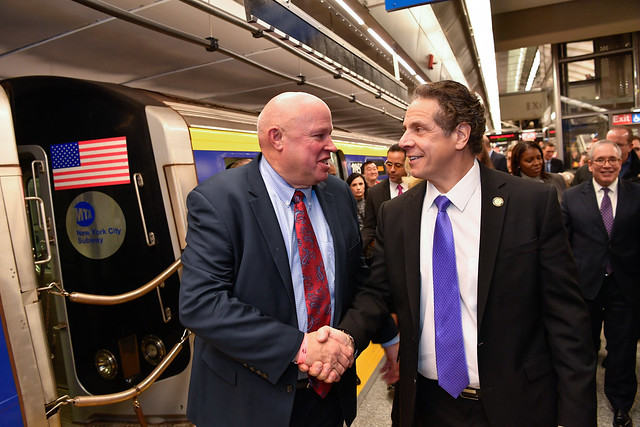While I haven’t had an opportunity to post here in a few weeks, the transit news has been rolling non-stop. From Penn Station to the subway’s aging signal system, we’re witnessing the acceleration of the slow-motion collapse of New York City’s transit infrastructure, and Gov. Cuomo is taking responsibility for his MTA only in fits and starts. There are no plans to ramp up the pace of work required to ensure the system doesn’t backslide any further, and that is a topic I hope to explore more in the coming weeks.
Meanwhile, as train service starts to sag and reliability declines, everyone is wondering how much can New York City, an economic center of the country, withstand before the problem becomes a national one. I believe we may already be there even if our leaders won’t, don’t or can’t take responsibility for any of their actions. It’s a lazy cliche to say only time will tell, but for now, only time will tell.
For more insight into the current state of things, I spoke with Slate’s Isaac Chotiner last week, and his Q-and-A with yours truly ran today in the online mag. We discussed the issues writ large of declining service reliability; we pointed some fingers at Albany; and we pondered whether the feds, not particularly sympathetic to urban life these days, could be depended upon for a rescue as they have been in the past.
I’ll leave you with an excerpt and my thought for one politically challenging but perhaps necessary approach to the S-L-O-W pace of signal upgrades. Mosey on over to Slate for a full read, and I promise I’ll have more here soon.
If you were governor, what could you do right now to make the situation better?
Say to people, “We know your subway system is bad, we know your train system is bad. To really fix it we have to take lines out of service for extended periods of time.” We don’t know what those periods of time are because no one at the MTA has really explored the issue yet. But if you can accomplish a signal replacement in a year without a train service, it might be better to do that than to knock out service over seven or eight years and have this uncertainty.











